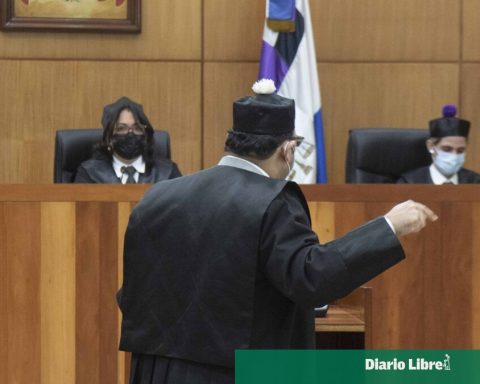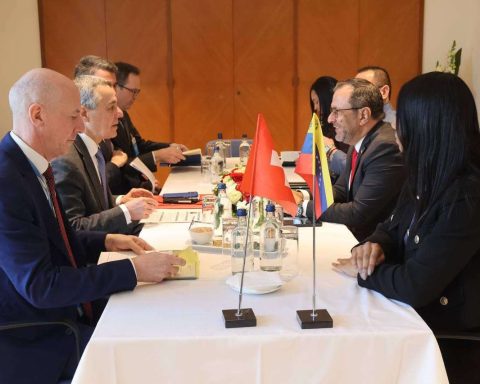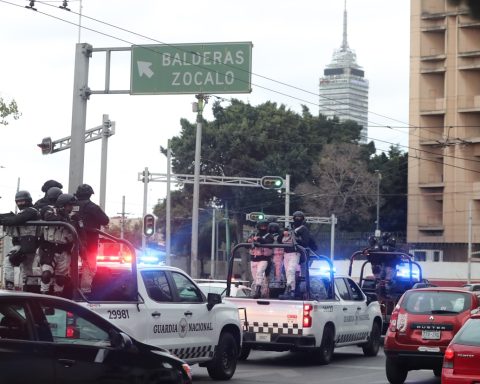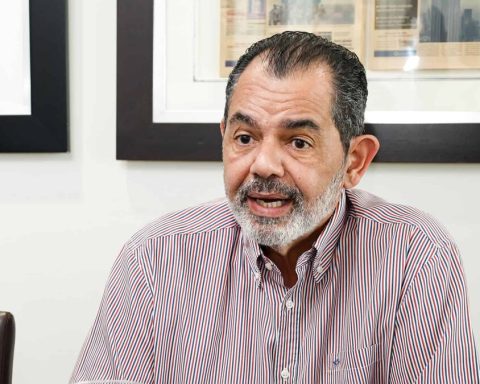On Friday, for Town meeting it was hard and dizzying. The party leader, Guido Manini Ríos, demanded on open television that the president review a measure that had been taken and had already been communicated. Hours before, he had considered on the radio the possibility of leaving the coalition. The former Minister of Housing, Irene Moreira, gave a conference from the ministerial headquarters when she had already been asked to hand over the position and said that she would make the same decision for which she had been removed. After that hard and fast Friday came a weekend to “drop the ball” and “think cool.” But there are still conflicting positions on whether they should leave the governing coalition led by the National Party. The final decision will be made this Monday.
During this weekend, the leaders of the groups they asked their followers what they thought about what happened, how they evaluated the risks. But not only referring to the episode of the former Minister of Housing, Irene Moreira, who was asked by the president to resign for having reserved a space for a house that was going to be raffled off to grant it directly to a Cabildo Abierto militant. They also asked on government management in economic and security matterstwo of the points on which Cabildo Abierto has been most critical.
The conversations were not only with the groups, but also with their government hierarchs and among themselves. There were conversations “at all levels,” lobbying sources indicated to The Observer.
That is what they will try to bring to earth this Monday, when the final decision is made by majorities at the party’s political table, which is scheduled to meet at 6:00 p.m. But there are many issues at stake.
When Manini Ríos gave his conference on Friday at noon, he stressed that everything that was done in the ministry was adjusted to the law and that he was surprised by the criticism he had received from members of the coalition. He also highlighted that there are people who are trying, from within, to break the coalition and harm the Cabildo Abierto. “It is so clear that the ministry has adjusted that it leads us to think that this decision by the President of the Republic cannot be based on this specific fact when clearly there are much more serious things in the country. What really bothers them are the proposals of the Cabildo Abierto, what he did to improve the project of the Social Security Reform and above all to attend to the indebtedness of so many Uruguayans,” warned Manini. Moreira expressed himself in the same sense.
But beyond that, there are other issues that are considered when deciding whether or not to break the political alliance.
Among them, the possibility of Cabildo Abierto to succeed in promoting two of its most important parliamentary projects: home prison for people over 65 and debtors’ law. Although they have been resisted by the rest of the coalition —and in the case of the first, they have proposed several modifications— the chances of approval outside the coalition decrease even more.
Besides, as reported The Observer, Cabildo Abierto has 54 executive positions of political trust in the government and dozens of middle management officials that, depending on the decision that is made, they could be out of their posts from one day to the next. This has a double consequence: leaving dozens of people jobless and also cutting off the possibility of influencing state policies.
But also, they ponder whether it is the best moment to accentuate their political profile or wait until a moment closer to the national elections.
Those who maintain a position more similar to the one that Manini used on Friday, and even the president of the party, Guillermo Domenech, who told Así Nos Va (Carve radio) that he was in favor of breaking the coalition, warn that the charges that they could eventually lose cannot be something that weighs in the decision. “One does not enter to work in politics for a position, if they need work they go out looking for it,” a lobbying source told The Observer.
Others are more cautious and value the interference that these people can have in public policies in the time that remains and everything that the party would lose if the alliances in Parliament are destroyed. In the last antecedent of a rupture of a coalition government —that of colorados and blancos in 2002— the nationalists only left the posts with the greatest political weight: those of ministers. The rest continued despite the break.
Why would it be important for the Cabildo to leave the coalition?
In this way, the government would lose its parliamentary majority —and conditioning the approval of projects of its interest, such as accountability— and in turn, if the Cabildo Abierto voted with the Broad Front, they could request the censure of a minister after a eventual questioning.
That is why it has become the most important crisis in the coalition since the government began, in March 2020.
As reported The Observer, Beyond the final decision, government sources indicated that the relationship with Manini’s party was “severely damaged” as a result of the virulence of the messages from him and from his wife, Moreira, although they bet that the weekend would help lower the decibels of the conflict and choose to stay in the coalition.















